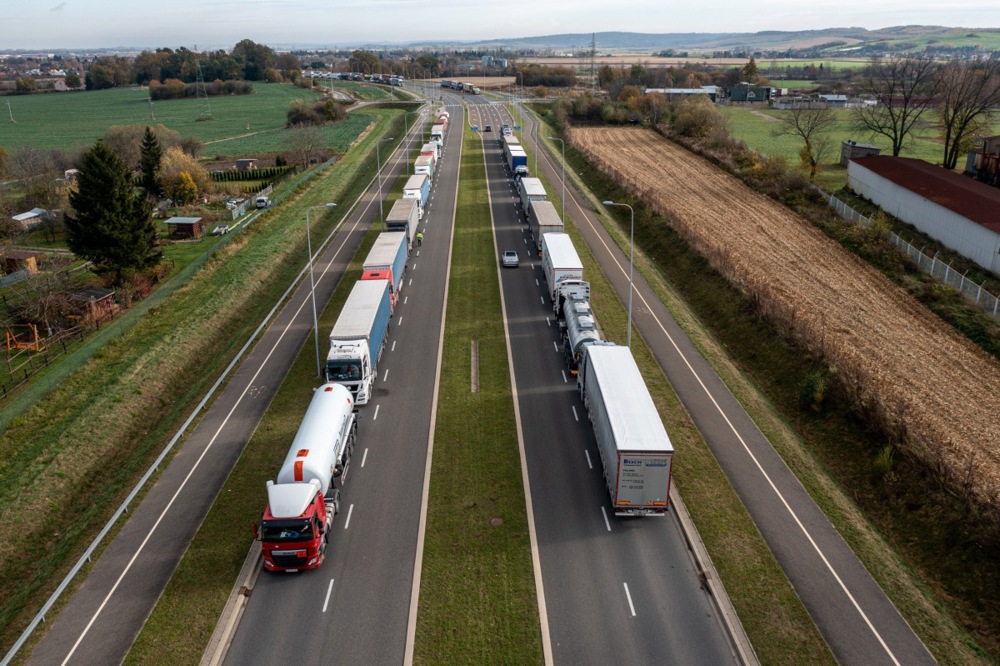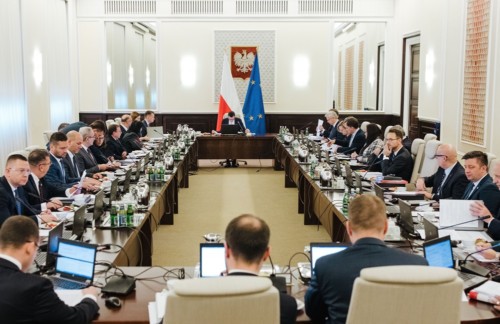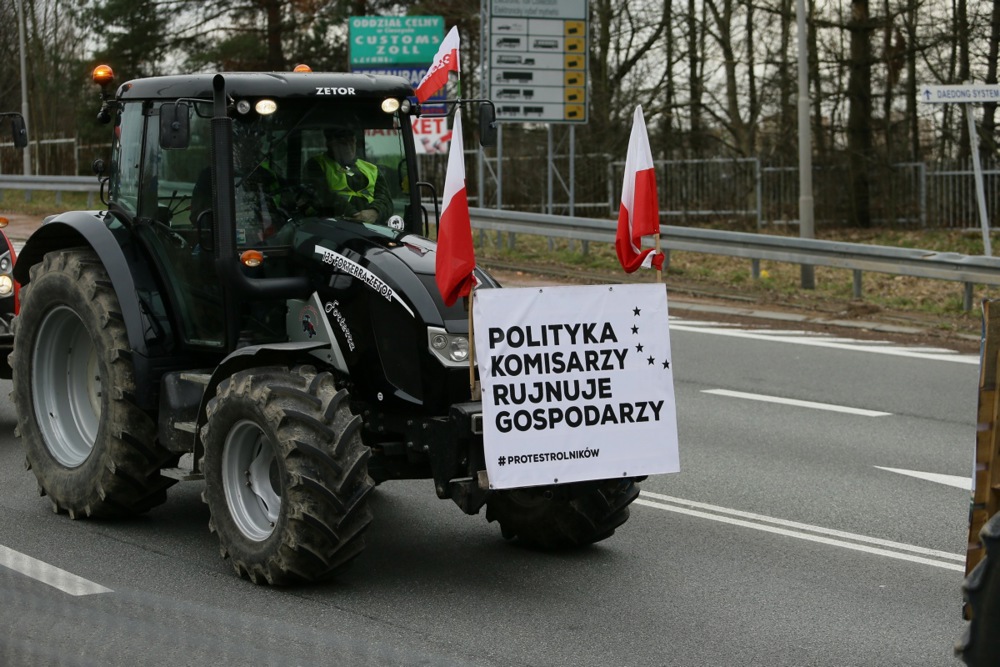Poland’s Government crowed that it persuaded the European Commission to revise a deal on road transport between the European Union and Ukraine, which had prompted truckers’ protests on the Polish-Ukrainian border late last year.
The existing agreement between the EU and Ukraine went into force in June 2022. Since then, the EU has increased imports from Ukraine by around two-thirds in terms of transport volume and by around one-third in terms of value, according to Polish daily Rzeczpospolita.
In absolute terms, more than 300,000 additional tonnes of goods were exported to the EU each month and EU exports to Ukraine also increased by around 300,000 tonnes per month.
Polish hauliers protested that, due to lower rates charged by Ukrainian companies and the lack of a need to comply with EU standards, their firms transport such produce in both directions.
Polish truckers spent weeks protesting at the Polish-Ukrainian border last autumn. The demonstrations were only suspended in mid-January after the new Donald Tusk-led Government’s pledge to seek a change in EU rules regarding the issue.
The Polish ministry of infrastructure on March 6 announced: “The European Commission has agreed to revise the EU-Ukrainian agreement on transport of goods by road as result of the intensive and multi-faceted efforts by the Polish side to demonstrate its negative impact on the Polish road-transport industry.”
Polish infrastructure minister Dariusz Klimczak trumpeted: “Dozens of meetings, talks and negotiations with both the European Commission and the Ukrainian side have brought results and we have managed to convince our partners of the need to work on the revision of this agreement.”
He added that he hoped “the proposed changes will contribute to the rebalancing of the freight-transport market between the EU and Ukraine and will meet the expectations of Polish transporters”.
The EC had earlier stated that, although the scope of the agreement with Ukraine would remain the same, safeguards will be introduced to ensure that “major disturbance” on domestic road-haulage markets might be avoided in future.
Other amendments included requiring drivers to carry documents showing that a transport operator be duly authorised to perform international carriage and documents certifying that an “unladen” operation is directly linked to a transit or bilateral entity. It also included directives involving the combating of fraud and/or the forgery of driver documents.
“The Commission has taken into account lessons learned from the implementation of the current agreement, and while the scope of the agreement will remain the same, the Commission proposes updates to facilitate its implementation and enforcement by the Member States,” the EC said.
In addition, it confirmed the proposals had been discussed with Kyiv.
The EC proposal, due to run until the end of 2025, will now have to be approved by the Council of the European Union – composed of representatives of the 27 EU Member States.





